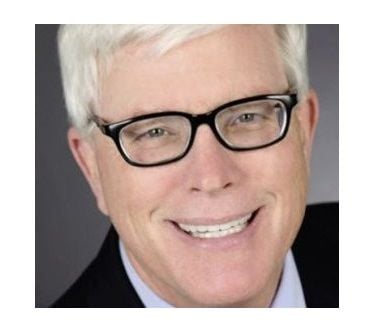
Israeli politics were more unsettled than usual before Trump's announcement. Early elections are coming in April. Michael Oren - former ambassador to the United States, now a deputy minister - is one of the few Israeli officials who is carefully listened to by both Washington and American Jewry, yet he has been orphaned politically by the collapse of his Kulanu Party. Prime Minister Benjamin Netanyahu may steal a march on a rising rival, Naftali Bennett, by drafting Oren into the prime minister's Likud Party, and keeping him out of Bennett's fledgling New Right Party, which is draining away Netanyahu's most reliable voters. Whether Oren aligns with Netanyahu or Bennett, Israel needs him out in the world explaining the Jewish state's policies, given the potential threat of a two-front war with Hamas in Gaza and with Hezbollah and Iran in Lebanon and Syria to the north. Politics here is confused, uncertain and tense.
Amid the turmoil, Trump's troop-withdrawal announcement had a clarifying effect. "If a war comes, better in the next two years while we are certain of Trump's backing," one influential Israeli told me. That's the ominous backdrop of national security adviser John Bolton'stwo days of meetings with Netanyahu and Israel's security team. On Sunday, the two men appeared together, with Netanyahu bluntly stating that Israel would never leave the Golan Heights, which abuts Syria, and Bolton underscoring the strength of the Trump-Netanyahu bond and emphasizing that Iran poses the most serious threat in the region.
"Despite getting out of the Iran nuclear deal, despite the sanctions," Bolton said to Netanyahu, "we have little doubt that Iran's leadership is still strategically committed to achieving deliverable nuclear weapons."
Hadeach of the journalists accompanying Bolton on this whirlwind trip been given a piece of gold every time the national security adviser mentioned Iran, a band of new leprechauns would be landing in Washington this week. Again and again, Bolton returned to the subject of the president's exit from the nuclear deal and his commitment to containing Iranian expansionism. Bolton cited U.S. bases at al-Asad in Iraq and al-Tanf in Syria near the Jordanian border as evidence of Trump's "determination that Iran not achieve this arc of control stretching from Iran thru Iraq into Lebanon and into Syria."
Change is happening rapidly in the Middle East. The past few weeks have been noisy and confusing, but Trump is sending "his two great stars" as he calls them - Bolton and Secretary of State Mike Pompeo - to blitz the region's capitals with the key message: We aren't bugging out again, as President Barack Obama did in 2011. And, please, let's keep our focus on the malign ambitions of the Iranian mullahs and Revolutionary Guard.
The U.S. news media, obsessed with Trump, tend to confuse "primitive" with "primal." "Primitive" is, if not an insult, then an evaluation, and Beltway elites think Trump primitive in his methods and goals. "Primal" is an inherent condition, a given, basic statement that a thing or characteristic is of overarching importance.
If observers could, for a moment, let go of their collective desire to brand Trump as primitive, they might see that sledgehammer tactics are needed in the Middle East, primarily because Iran is sending tens of thousands of missiles to Lebanon and Syria, which poses an existential threat to Israel. That's the primal reality of the region: militant Shiite expansionism, specifically of the Khomeinist variety, threatening not just Israel but also the United States' Sunni allies. And threatening Turkey, though President Recep Tayyip Erdogan seems not to worry much about his nation's historic rival. There are either 1913 or 1938 conditions in this region, and Trump has focused not just the United States and Israel, with their loud and deeply conflicted politics, on the key issue.
Trump then dove into the particulars at home with Sen. Lindsey Graham, R-S.C., who, along with Sen. Tom Cotton, R-Ark., knows the region best, and the president dispatched his "two stars" to reinvigorate a stagnating coalition and to try to realign Turkey with the rest of the anti-Iranian expansion coalition. Pundits focus on what they call "Trump's walk-back." Trump and his team are focused on Iran, protected so long by Team Obama's "echo chamber" - as former Obama adviser Ben Rhodes deemed the compliant and usually flattering press that swallowed the previous administration's line on Iran's illusory "moderates."
No unicorn hunts for Team Trump. Just the primal realities of the Middle East.
Every weekday JewishWorldReview.com publishes what many in the media and Washington consider "must-reading". Sign up for the daily JWR update. It's free. Just click here.
(COMMENT, BELOW)


 Contact The Editor
Contact The Editor
 Articles By This Author
Articles By This Author